| My Big Fat Greek
Wedding was a movie about Vigilance overpowering Terrorism.
While fun and funny, its deep layers of ethnic differences showed what
happens when the walls of a culture rise up and threaten the evolution
of society. In the end, there was sunshine, but during the
film there was a constant question of whether Terrorism would
suffocate Vigilance. |
 VigilanceVoice VigilanceVoice
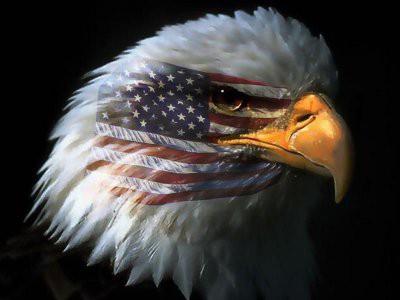
www.VigilanceVoice.com
Sunday--January
26, 2003—Ground Zero Plus 501
___________________________________________________________
My Big Fat Greek Wedding:
A Celluloid Battle of
Terrorism vs. Vigilance
___________________________________________________________
by
Cliff McKenzie
Editor, New York City Combat Correspondent News
|
GROUND ZERO, New York City, Jan. 26--Last
evening my wife and I took a break from the madding crowds of New York
City weekend bustle and elected to see the movie My Big Fat Greek
Wedding. I was ready for something light and entertaining, and
knew that the movie had become a great hit with audiences so I felt
secure in spending my money.
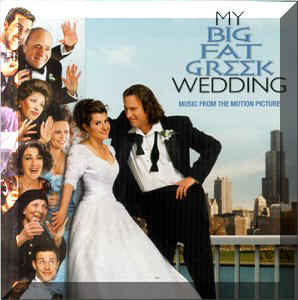 |
I walk out of more than
half the movies I go to. Nothing is more wasteful in my
mind than to sit through a film you don't like, watching a story you
can't stand, and listening to people laugh or moan over scenes that
make you want to vomit.
I didn't want to walk out of My Big Fat
Greek Wedding.
I found it an onion movie, with lots of
layers that peeled back slowly, engaging my ability to laugh and cry
at the same time--the ultimate, I believe, in good movie making.
The message was all about war and the
Terrorism one culture imposes on another.
The plot was a non-Greek boy (John Corbett
playing Ian Miller) falls in love with Greek girl (Nia Vardalos
playing a frumpy loveless 30-year-old daughter named Toula
Portokalos). Nia wrote the script for the movie which was based
on her own Greek heritage.
Ian and Toula are outcasts. Toula
doesn't want to conform to Greek Orthodox behavior--get married to a
Greek, have Greek babies, send Greek babies to Greek school, make sure
babies marry Greek spouses so that Greek culture will survive.
Oh, and in the process, cook lots of Greek food between babies.
Ian comes from the upper crust. His
father is a lawyer and his family has all been lawyers.
Ian has long hair and is a school teacher. His family is
the opposite of the Greeks, cold, emotionally indifferent, culturally
vacuous.
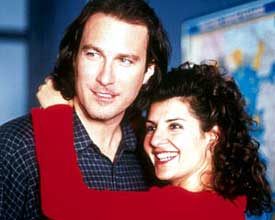 |
|
Toula and Ian
are from diverse backgrounds |
Toula's family all seem
to live in the house--cousins, uncles, aunts, nieces, nephews--owned
by Toula's "Mad Greek" father, Gus Portokalos (played by Michael
Constantine). Gus rages on about the virtues of being
"pure Greek," constantly reminding everyone all words find their way
back to ancient Greece, and has his house decorated like the Acropolis
to remind himself, his family and all the neighbors of the value of
Greek heritage.
So the greatest possible insult to him is
when his daughter falls in love with a non-Greek, and one with long
hair and no religious affiliation. The cultural walls shoot up.
The movie, rife with wonderful acting and a furious tempo of food,
eating and dancing of family members--I got hungry for Greek food
during the movie--is truly about the difference between Palestine and
Israel, or America versus Iraq, or Black versus White America.
Two cultural forces meet and clash.
On one side is a long history reaching back to the dawn of
civilization where philosophy and democracy were born and extends to
modern times where a young man has long hair, no cultural reference,
and no religion.
It is a story about breaking the bonds of
cultural restraint flavored with the zeal to evolve from the past into
the present, to assimilate two wildly different cultures into one and
find some zany way to coexist despite thousands of years of prejudice
and bigotry between the two.
The heart of the story is a hidden
motif represented by Gus Portokalos' mother whom he brought over from
Greece who still thinks she is at war with the Turks. She lashes
out at her son, hitting him with gnarled, ancient fists and constantly
wanders off trying to escape into neighbor's basements and on their
roofs. She is told: "Grandma, the war is over."
But she doesn't believe it.
While engaging, entertaining and
thoroughly worth every penny spent to see it, I found the movie a
strong example of Terrorism confronting Vigilance.
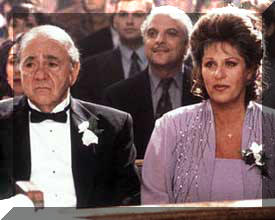 |
|
Father, Gus
ultimately accepted the outsider, Ian, who vigilantly strove
to be "greek" |
Gus was Terrorized by
the thought the cultural bloodline of his family would be watered down
if his daughter married an outsider. Along with this Terror was
a constant reinforcement by dialogue that love and marriage had
nothing to do with one another--that marriage was a vehicle for
sustaining the purity of the race, the culture, and that love was some
transient vagabond who happened by and then went about his peripatetic
search for the elusive and unattainable.
In one scene, when the words "happily
married" were used, a schoolteacher friend of Ian's commented, "that's
an oxymoron, it's not possible those two could exist in the same
space."
This puts Toula in a quandary.
Which is more important, her family or her love. She decides
that her family is more important--symbolizing the Terror she felt of
abandoning her culture and her family for love.
Ian comes to her rescue.
He tells her he loves her so much he'll become Greek, thus resolving
the conflict. He agrees to be assimilated into the society, the
culture.
Slowly, he is accepted.
The Greeks have won. The bloodline remains pure, even if
it is tainted.
I found the movie a compelling
example of current world events. America is trying to have
a Big Fat Greek Wedding with the world.
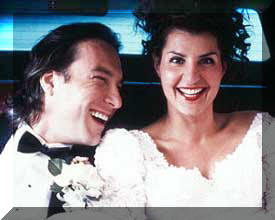 |
|
The movie
teaches a lesson in vigilant acceptance |
In the Mid East,
the thrust of America's policy is to inject into the ancient,
hard-line cultural walls of Islam a new way of thinking.
It is trying to break the bonds of servitude that despots have
maintained for centuries over their people, as Gus had examples the
despotic rule over his Greek family.
In the movie, Gus, the father, was
irate that Ian had not come to him and asked permission to date his
daughter, and then further infuriated when they were engaged, again
without his blessing. Every inch of the movie illustrated
the Terror of a family torn by its leadership being questioned by
Thula's refusal to adhere to ancient disciplines of the daughter and
the threat she posed to upset the purity of the family by setting an
example of going "outside" the Greek community to find love and
happiness.
Duty and obligation overpowered
love, and appeasing father and the Greek patria chary had more power
than living one's own life according to one's own values and desires.
The Mid East and North Korea
are not dissimilar in their angst over assimilation into the modern
world. The difference between these "rogue nations" and the movie is
that Iraq and North Korea are willing to go to war and kill or be
killed to maintain their stance in the anachronism of cultural deep
freeze.
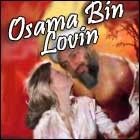 |
|
During the
movie Terrorists' faces morphed in and out |
Throughout
the movie, I kept seeing Kim Jong Il's face pasted on that of Gus',
and when the scene shifted, I saw Saddam Hussein's and Osama bin
Laden's countenance morph in and out.
Ian, in a softer gentler way
that is currently portrayed by President Bush, represented the driving
force of American policy to infiltrate these Terrorist nations with a
new wave of thinking that would bring them up to speed with modern
times so that interdependence rather than alienation could replace the
hatred and bigotry that drives despots to teach their people that
Western culture is a vile and corrupt system designed to destroy them,
and their children, and all the values that history has created in
their lives.
At the same time, Ian
represented Complacency, the ultimate element of Terrorism.
His parents were inert, cultural zombies. They were stodgy straw
automatons who had no dimension, no blood in their veins, no opinions,
no zeal, no zest for life or living.
They symbolized all the
people who turn their backs on issues, or, worse, don't bother to
speak out their opinions pro or con. They were the
doormats, the nations who stand by and watch Iraq and North Korea grow
into Terrorists and refuse to stand up against them, and, when other
nations such as America and Britain do, turn their backs and refuse to
participate as Germany and France have done in recent days.
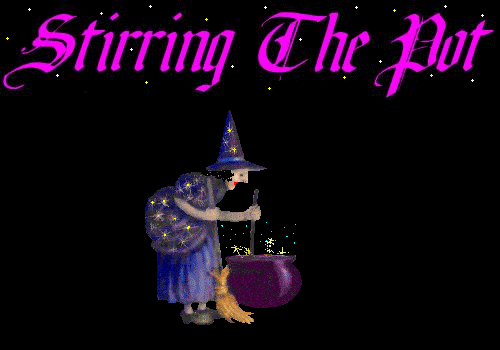 |
|
We must stir
the pot of Vigilance to upset and upend Terrorists |
They would
wish the problem away, for stirring the pot of Vigilance in the face
of Terrorism upsets their current lifestyle, interferes with their
"country-club" mentality, and forces them to "take sides." They
would rather ride the fence and pick up the spoils from either side
than commit resources to fight against what is wrong for what is
right.
I thought of all the
Americans who view Terrorism today as nations at war, instead of a
cultural symbol of Complacency. I thought of how sad
it is when Americans and other nations refuse to teach their children
the importance of Vigilance--that Courage, Conviction and Right
Actions to the benefit of the children's children's children is so
much more powerful than Terrorism's Fear to change, or its
Intimidation that the old ways are the only ways, or its Complacency
that "don't rock the boat" will keep the Beast of Terror from
recognizing who you are and come after your house or your children.
Terrorism is indiscriminate in
its appetite. It will eat any and all who stand in its way,
either with it insidious gnawing at Courage, Conviction and Right
Action, or with weapons of mass of destruction.
My Big Fat Greek Wedding had
all these tensions present in its making, including the beautiful
scene near the end of the movie where the "mad grandmother" brought
Thula a treasure chest full of her old memories and a wedding crown
she had worn decades ago and presented it to her.
In a subtle but profound way, the
grandmother was the "old ways," surrendering to the beauty of love in
the "new world." She offered the wreath of peace to her
granddaughter, and her eyes shone as new hope for the future rose up.
 |
|
Vigilance in
developing awareness, understanding and appreciation of cultural
differences unites us |
In the end,
the assimilation worked. Ian's confrontation with the
Terrorism of cultural differences was successful. He had the
Courage, Conviction and took the Right Actions to become Greek because
his love for Thula overpowered the Terror of not being with her.
In her subsequent role of
mother, Thula used her Vigilance in a similar way. By retaining
her ties with her family, she promoted to her six-year-old daughter
the values of being Greek, but with a caveat. She told her
daughter at the end of the movie she could marry anyone she wanted,
not limited to just Greeks. Her Right Action was to
unshackle her child from cultural oppression, and promote she be free
to live a life driven from her heart and not from her ancestors.
Ultimately, I hope the viewers
of My Big Fat Greek Wedding look upon it as a film of Vigilance.
There are great triumphs in the movie, small in scope, huge in import.
They remind us that in the smallest ways Terrorism holds fast to old
ideals, and the Vigilance is required to change those old ways, and
assimilate new ways within the old so that the evolution of society
can proceed with the least bloodshed.
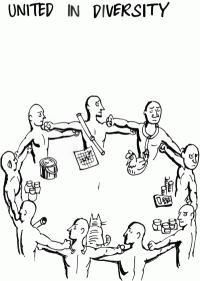 |
|
....through
Vigilant change |
Perhaps rather than bombing Iraq or North Korea we can
just drop copies of the movie to all their citizens, and
let them see that assimilation isn't so bad.
As the movie suggests in the end, the two cultures can
live next door to one another in peace and harmony if
both sides agree to change just a little.
The first
step in that change is to take the Pledge of Vigilance
and think more about the rights of the Children's Children's
Children than the rights of the despots who try and rule
them.

Jan.
25--500 Days From Ground Zero Terrorism
©2001
- 2004, VigilanceVoice.com, All rights reserved -
a ((HYYPE))
design

|
|
|